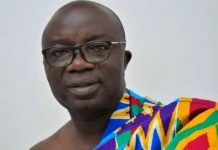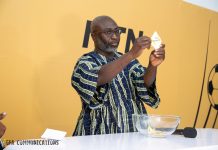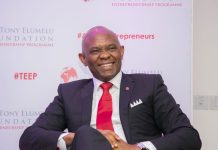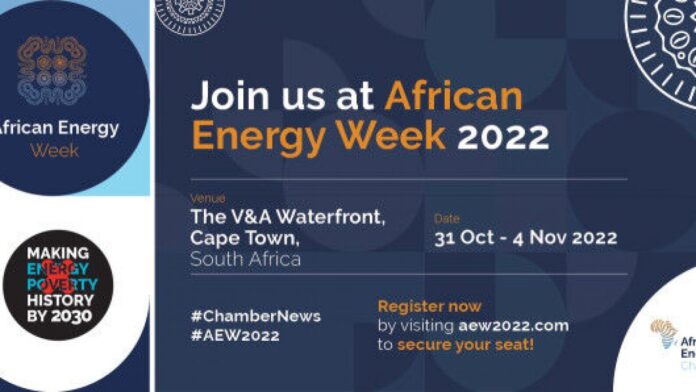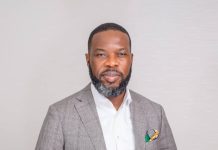JOHANNESBURG, South Africa, June 28, 2022/ — As Africa’s energy sector prepares for the forthcoming Africa Oil Week, Dr. Omar Farouk Ibrahim, Secretary-General of the African Petroleum Producers’ Organisation (APPO), says the continent must balance the pursuit of sustainability with its huge energy needs and its significant development challenges. Most importantly, Africa should pursue sustainable energy on its own terms.
African nations shall strive to meet their Paris Climate Agreement commitments, and move the region towards renewable energy. But Africa shall do this on its own terms, charting a transition course that prioritizes uplifting the living conditions of its hundreds of millions of people currently living in abject energy poverty, especially in the rural areas – with no access to electricity nor any form of modern energy for cooking and heating homes.
This is the message from Dr Omar Farouk Ibrahim, Secretary-General of the African Petroleum Producers’ Organisation (APPO). Dr. Ibrahim was speaking in the build-up to Africa Oil Week (AOW) in Cape Town from October 3-7.
Dr Ibrahim will be opening speaker at Africa Oil Week, the continent’s premium energy event, where he says it will be critical for Africa to advocate for its right to use its own natural resources for the foreseeable future.
“There is a growing consensus across the continent that we cannot make much progress in our quest to eradicate or effectively alleviate poverty without access to affordable and reliable energy source. And renewable energy, at least for the foreseeable future, is neither affordable nor reliable.
Until renewable energies become affordable and reliable, it is safer for Africa to rely on fossil fuels to change the living conditions of its people just like today’s developed countries did for over one hundred and fifty until they weaned their countries from energy-dependent economic activities,” said Dr. Ibrahim. “Gone are the years when Africa’s priorities are determined outside the African continent.’’
Many of Africa’s energy resources remain untapped – both in terms of renewables (https://bit.ly/3R3IQQW) and fossil fuels (https://bit.ly/2mqAZCT).
Dr. Ibrahim said it was Africa’s right to unlock these vast reserves for the benefit of its people, as well as for the world at large.
Mid-century is the deadline (https://bit.ly/3a168pF) that most of the developed countries have set themselves for becoming carbon neutral.
However, as an emerging region, Africa does not have the luxury of leaving its energy assets “stranded” (https://bit.ly/2mqAZCT) – particularly when around half a billion Africans still live (https://bit.ly/3a16b4P) below the poverty line of $1.90 per person per day.
“Africa is only responsible for around 3.8% (https://bit.ly/39XTrfr) of global greenhouse-gas emissions,” said Dr Ibrahim. “We are moving towards renewables, but it would be something of an injustice for Africa to be compelled to abandon our natural resources because the developed world has spent more than a century polluting the planet.”
He said African producers should be allowed to responsibly develop their energy assets for economic development and job creation in their own economies.
“The conversation needn’t be polarised,” said Dr Ibrahim. “We agree that every nation must determine its own optimal energy mix in the run-up to 2050. Africa’s producers are not ignorant of global climate pressures, but we all believe that the upstream can be developed for the good of Africa without compromising the environment. The technology exists. And even if it does not exist, all that is required is the commitment to develop it. But those with the technology have no interest to make fossil fuels environmentally friendly.”
Dr Ibrahim said APPO was working to create a policy environment that supports producers by attracting responsible upstream investment. “It should be a win-win solution,” he said.
APPO was established in 1987 as a platform for cooperation and the harmonisation of efforts, collaboration, and the sharing of knowledge and expertise among African oil-producing countries.
“We are all working towards carbon neutrality.” said Dr Ibrahim. “But until then, we need an affordable and reliable energy supply. Renewables are not yet supplying the full energy demands of any nation on earth – hydrocarbons will need to meet those needs.”
“Who will meet those needs for the African people?” asked Dr Ibrahim “Why should it not be any of the APPO Member Countries? Why should we call a halt to promising offshore exploration off Namibia, Mozambique (https://bit.ly/3u4i5ly), or any parts of Africa when hydrocarbons are still required to drive Africa’s development?”
Dr Ibrahim emphasised that Africa was a region of enormous opportunities, which must be exploited for the good of Africans and for the world at large.
“We are really excited about Africa’s energy future,” he said. “We stand united as an industry, ready to embrace the opportunities that it brings”.
About Africa Oil Week:
Africa Oil Week (AOW) will take place from 3-7 October 2022 in Cape Town, under the Patronage of the Department of Mineral Resources and Energy, with the theme “Sustainable Growth in a Low Carbon World”.
AOW will advocate the importance of developing hydrocarbons in Africa and the sustainable development of oil and gas. AOW is the global platform for deals and transactions across the African Upstream.
The event brings together governments, national and international oil companies, independents, investors, the G&G community, and service providers, offering unrivaled opportunities for investment and deal-making to help shape the future of Africa.




